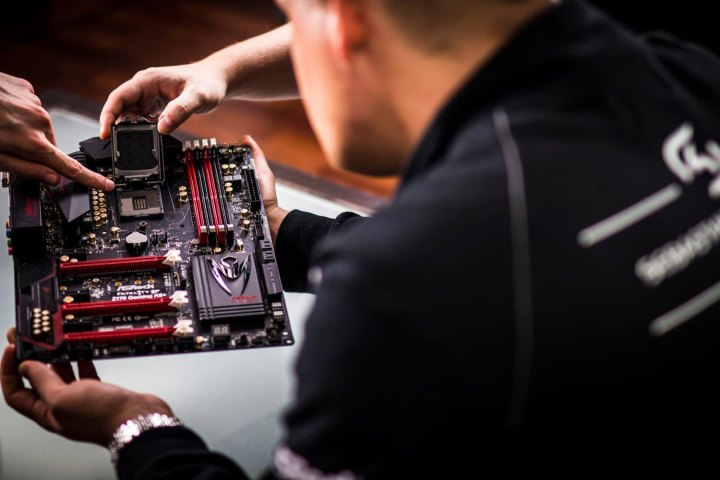
Intel is careful to allow overclocking only on its high-end processors, and has seemingly pressured motherboard manufacturers to help enforce this. Which is why Sky OC, a feature announced by ASRock, made headlines back in December. The company announced the firmware update including the feature with a page full of screenshots of seemingly miraculous results. For example: taking a Core i5-6400 from 2.7GHz with a bus speed of 100.9MHz all the way up to 4.3GHz with a Bus speed just shy of 160MHz.
But users enjoying this feature who upgrade their ASRock motherboard firmware will find that it’s now missing entirely.
“Remove SKY OC Function,” the release notes for the update say, without much in the way of an explanation. And the page that once loudly announced the feature’s capabilities is gone. Trying to open it redirect you to the ASRock homepage. All this just two months after the feature was announced.
Hardware blog Hexus reports suspects Intel is behind the change.
“There has been talk about Intel pushing motherboard vendors to remove the overclocking of non-K Skylake processor capabilities from their feature lists,” wrote Mark Tyson, “Now we have seen the first evidence of this pressure.”
Overclocking lets users get more power by accepting the risk, as opposed to paying for a more powerful processor. It makes sense that Intel wouldn’t like this. The bottom line depends on selling more expensive processors. Tests have shown that an overclocked i3-6100 could out-perform an i5-4430 in Cinebench.
“That’s obviously not an appealing comparison for Intel which charges considerably more cash for its i5 chips than their i3 bretheren” wrote Tyson.
Older versions of the firmware that include Sky OC are still available, if you know where to look, but they won’t be getting any other updates.
There’s been no word on this from ASRock or Intel, so the motives are just speculation at this point. We’ll be interested to see if an official explanation pops up.


